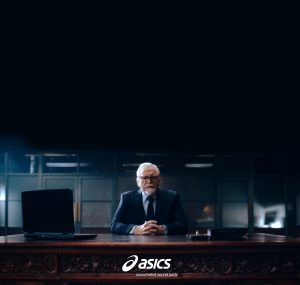ABU DHABI / GULF TIME
The 2024 State of Mind Study was conducted between November 17 — December 21 2023 and explored the relationship between exercise and State of Mind across the world. Over 26,000 people were surveyed across 22 markets including Australia, Brazil, Canada, Chile, China, Colombia, France, Germany, India, Italy, Japan.
- Globally, those who are sedentary for 10 to 12 hours a day reported a significantly lower State of Mind score of 62/100 versus those who were sedentary for only 4 to 6 hours a day (66/100).
- In Saudi Arabia, those who are sedentary for 11 to 12 hours a day reported a significantly lower State of Mind score of 65/100 versus those who were sedentary for only 4 to 5 hours a day (77/100). Further research into desk-based working found that after just two hours of continuous desk work State of Mind scores begin to drop and stress levels rise.
- Those who work for up to two hours continuously at their desk had a State of Mind score of 62/100, while those who work at their desk consecutively for 6 or more hours had a lower State of Mind score of 59/100.
- After four hours of uninterrupted desk-based working, stress scores rose significantly by 18% (from 49/100 to 58/100).
- Those who spend a full working day continuously at their desk (8 or more hours) report a 25% increase in stress levels compared to those who take a break after four hours of working at their desk.However, ASICS’ new Desk Break experiment finds that just 15 minutes of movement can start to reverse these effects and help improve our mental wellbeing, stress levels and productivity. When sedentary desk-based workers added just 15 minutes of movement into their working day, participants’ average State of Mind scores increased by 22.5%.
- Average confidence levels increased by 13.3%, anxiety levels plummeted by 12% and perceived stress levels decreased by 14.7%. Objective stress levels, measured by heart-rate variability, also decreased by 13.3%.
- Productivity was boosted by 33.2% and focus improved by 28.6%, demonstrating the impact of just 15 minutes of exercise during the workday on performance. The ASICS Desk Break Experiment ran from July 15-26 2024, led by Dr Brendon Stubbs of King’s College London & University of Vienna.The experiment studied 80 desk-based office workers from Australia, Brazil, Canada, France, Germany, India, Italy, Japan, Malaysia, Netherlands, Spain, Sweden, Thailand, United Kingdom, USA and the UAE. All passed health screening questionnaires and completed consent forms before taking part.
- In fact, taking a daily Desk Break for just one week led to consistent stress reduction, with participants reporting feeling 33.3% more relaxed, 28.6% more calm and resilient.As well as pinpointing the subjective mental effects of physical activity on desk-based workers, the experiment also studied objective data on the impact of movement on the brain using EEG scans of participants.
- Before exercise, and after 3 hours of desk-based working, the brain shows significant deficiencies in Theta and Alpha waves, indicating high levels of stress, anxiety and mental fatigue.
- After a 15-minute movement break, these deficiencies are reduced, showing exercise helps the brain relax, reduces anxiety, and re-energises mental processes.Participants expressed the positive impact movement breaks would have on their loyalty to their workplace…
- 79.2% of participants expressed they would be more loyal to their job if offered regular movement breaks.
- When movement breaks were introduced, participants’ happiness at work increased by 24.7%.
 The Gulf Time Newspaper One of the finest business newspapers in the UAE brought to you by our professional writers and editors.
The Gulf Time Newspaper One of the finest business newspapers in the UAE brought to you by our professional writers and editors.
